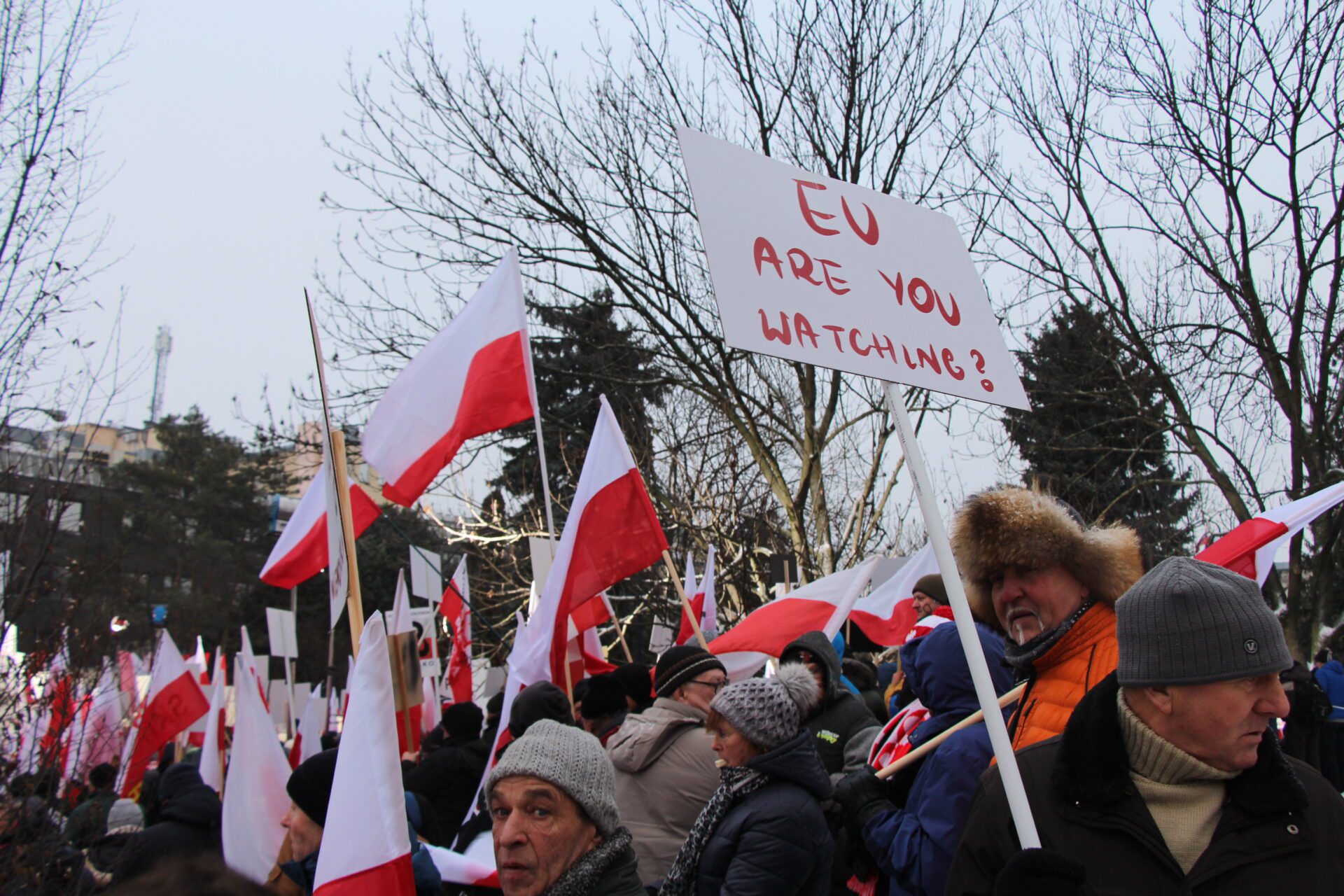The EU’s rule-of-law struggle with Poland was nothing but a farce

The entire struggle of the European Union to uphold the rule of law in Poland was one big farce, Jarosław Kaczyński, the leader of the conservative Law and Justice (PiS) party, said recently.
Paweł Lisicki
Kaczyński claimed the real issue was that the “wrong” people were in power, warning that today’s European Union is in a state of complete degeneration.
These words are shocking from several perspectives, primarily because they ring true. The EU’s battle for rule of law has been nothing more than an illusion, a mere façade. Since 2015, when PiS came to power, Brussels had been determined to oust the “right-wing nationalist conservative government” from Warsaw. The reason is straightforward: The EU bureaucrats’ goal of centralizing the Union and imposing a global ideology on all member states was thwarted by a Warsaw government that champions sovereignty and independence.
Brussels has been transparent about its objectives. All nations must conform to the ideologies of genderism and support so-called LGBT rights, mass immigration, and the net-zero agenda. This strategy leads to the downfall and fragmentation of the nation-state, which the eurocrats and their American liberal supporters view as the greatest threat.
The narrative that the EU is fighting for rule of law, as rightly pointed out by the PiS leader, is a fairy tale for the naïve. By totally discrediting the concept of a legal state, the Civic Platform (PO) now enjoys accolades from global democracies, exemplified by the words of German Justice Minister Marc Bushmann, who expressed admiration for Poland’s return to the heart of Europe and its commitment to strengthening the rule of law. This echoes earlier sentiments expressed by the U.S. Ambassador to Warsaw, Mark Brzezinski.
However, Kaczyński’s assessment of reality is not only accurate but also represents the harshest and most radical criticism of what he himself has done and said for at least six years since replacing Beata Szydło with Mateusz Morawiecki as prime minister.
If the EU’s fight for rule of law is indeed a grand comedy, it’s undeniable that the main actor for years has been the Polish government.
The Morawiecki cabinet, with full support from the PiS leader, has been an active participant in this farce, talking about milestones, tough negotiations, and imminent agreements to dismiss accusations of lawlessness in Warsaw. It’s been a Sisyphean task. Despite its efforts, the PiS government could never hope for recognition from Brussels.
What should have been done? A deliberate war should have been waged against the EU to preserve national sovereignty. The first step in any strategy is to correctly identify the opponent and abandon illusions.
Poland should have declared its refusal to compromise on immigration and gender policies and consistently blocked Brussels’ centralization plans. The government should have completed the justice system reform, vetoed the “money for rule of law” mechanism, and opposed ecological madness. It should have unequivocally supported local governments that introduced Rights of the Family charters and resisted LGBT movements funded by EU money. Laws against homosexual and gender propaganda should have been enacted, and the increasing authoritarianism and speech restrictions in the EU should have been combated.
The truth about the pro-family resolutions adopted by Polish local authorities under Law and Justice
Instead, the PiS government engaged in endless, futile negotiations and, by pressuring local governments to abandon their resolutions, effectively paralyzed resistance against the EU. It opened borders wide to economic immigration. And when the war in Ukraine in 2022 presented a strong hand, the government chose not to play it. It became the foremost, unconditional defender of Ukraine, completely abandoning what its supporters once disdainfully called “transactional politics,” a policy symbolized by Viktor Orbán in Hungary and most recently by Robert Fico in Slovakia.
Rather than demanding tangible benefits for Poland in return for its involvement – such as the immediate unblocking of funds – it sought to ingratiate itself with the West.
Thus, today the PiS leader can shout in the streets, while defenders of “our common Western values” from Berlin or Paris pat the backs of Civic Platform politicians, congratulating them on their effectiveness. Indeed – it’s a comedy.
This opinion piece was first published in Polish as the editor’s column in the Do Rzeczy weekly and translated into English by Remix News.



